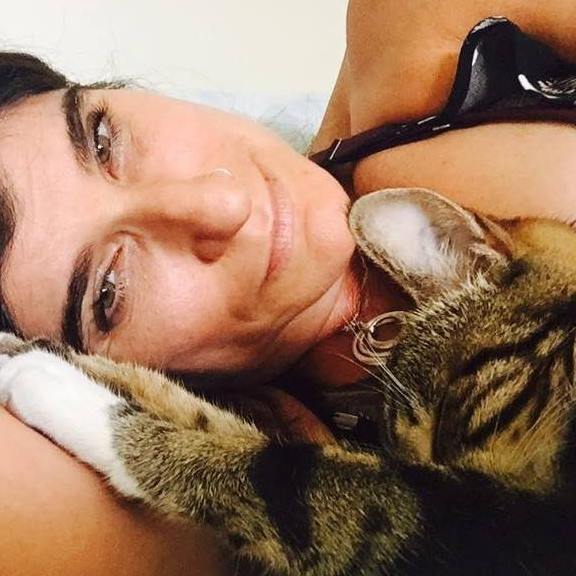I don’t do drugs. Unless you count coffee.
I rarely drink. Alcohol makes me tired and fuzzy in the brain.
I don’t smoke. Did for a while when I was in my 20s but moved on.
Sexual promiscuity isn’t available to me given my happy marriage, though I’m sure my husband would appreciate some sexual wantonness thrown in his direction more often.
I work.
It seems like a virtue, and for the most part, it’s paid off.
I’ve achieved “success” in many of its acceptable forms—Fulbright scholar, master’s degree in law from Yale, legal advocacy center founder, international bestselling author, writing mentor, online business entrepreneur, publisher. Oh, the things my parents can boast about to their friends.
But I recently slammed into what I now know as burnout. I’d only ever experienced it once before, many years ago when I was as a counselor for abused women. It’s a saturation of the human spirit. A pulling of the thread when there is no more thread to pull. A taking more when there is no more for the taking. Much like we’re doing to the earth, right now.
I’d been talking about “taking a break,” and “slowing down,” for 18 months. I clocked my four to five hours of sleep a night on my Fitbit each morning and vaguely thought, “I’m sure that’s not enough.” I worked seven days a week and told myself that’s what it took to build a business, and someday it would all pay off.
Well it did, but not in the way I expected, when I severely prolapsed a disc and spent two months in close-to-tears-pain. Stripped of all ability, I could barely make it to the toilet and back. The painkillers I needed made work impossible—my brain was an opaque soup of narcotics in which no single thought could make a clear appearance. I raged against this disruption of my sense of self.
Honestly, I didn’t recognize the shambolic, agonized, trembling tremor of a human being I became.
The months of recovery did more than simply reeducate me into the pathways of slowing down; they disrupted an inherited, systemic notion of “doing” as a way of understanding who I am.
“I am not worthy of company today,” I texted a friend who wanted to visit. “I am utterly incompetent nor able to offer anything of value today.”
“How dare you?” he wrote back. “Incapacitated is not incompetent.”
In this space of lingering and taking longer, instead of rushing and racing, I finally broke the spell of my workaholism. I saw how, for my entire life, I’d been scheduling my breaks, my meditation, my quiet time into a choc-a-bloc schedule; looking for ways to relax that were more time effective; ways to switch off that would be more productive and free up more time to get back to the real work of working.
I blush now, thinking about an email I once sent to a Buddhist teacher after booking myself into a five-day meditation retreat. See, a book deadline had unexpectedly been brought forward by two months, and I just couldn’t afford all that time off. I asked if I could just come for a quickie—just for the weekend, instead for the full five days. This is what she wrote:
“I very much hope you can commit to the retreat—it would energize and center you for all you have to manage once home again. Sitting with intolerable anxiety, and finding out it is actually tolerable, and learning more about it, can be a great gift…do consider that maybe, maybe the very anxieties about coming and/or staying the full five days are waiting to be met and worked with and transformed during the retreat.”
I did go for the full five days. And she was right. But as soon as I got back home, I kicked back into my default of over-functioning.
I’m reminded of Bertrand Russell’s words: “One of the symptoms of an approaching nervous breakdown is the belief that one’s work is terribly important.”
Something ego-bound had to crack. Six months after my disc prolapse, I have finally broken down the sense of who I am into something other than “work.”
Here are some of the techniques that have helped me:
1. I started to say “no”—to speaking gigs, social arrangements, and work opportunities. I learned how to disappoint people—something I am hardwired against. And I find I can still live with myself.
2. I don’t check email every day to avoid getting infected with someone else’s sense of urgency or distracted from working on my new book.
3. I swim in the ocean every day. It’s the only nonnegotiable meeting I have.
4. I started composting, and I take a lot of careful time separating all my garbage and ensuring it goes into the right place for recycling.
5. I do not care about “productivity” or “outputs.” I care about the quality of my interactions with people; the depth of my breaths, the spaces in between things that allow me to digest all experiences.
6. If I can walk somewhere, I do. It takes longer. And that’s the point.
7. I caramelize the onions.
8. I have days in my diary that are open. I have no idea what they are for, but they are not for work.
9. If the cat comes to sit on me or against me, I may not move until he does. Cats, as you know, spend most of their time sleeping.
10. I reread beautiful passages from books and poems I love. Again. And again. And maybe even one more time.
In our competence-addicted world, I am learning to unbecome. I cannot tell you what a relief it is, at last.
~












Read 12 comments and reply